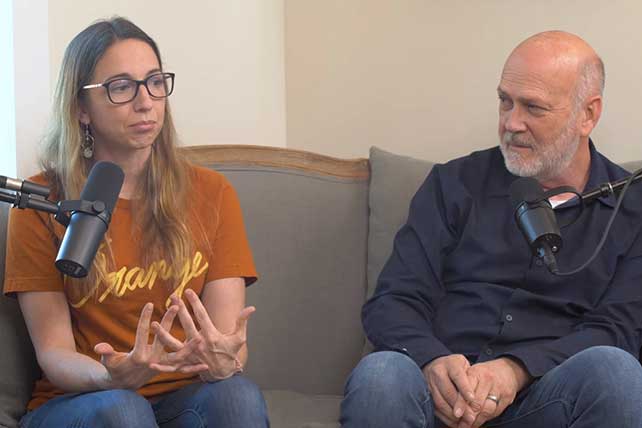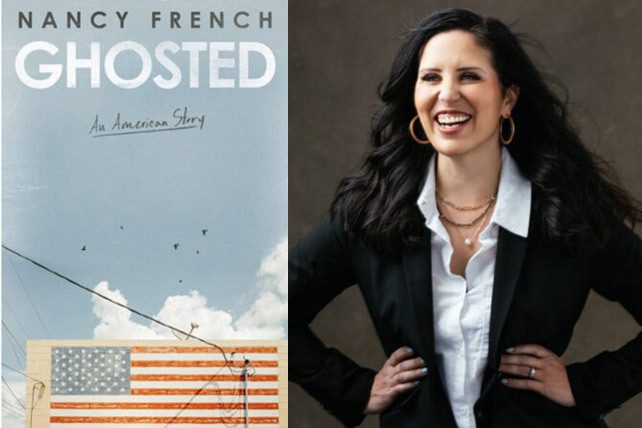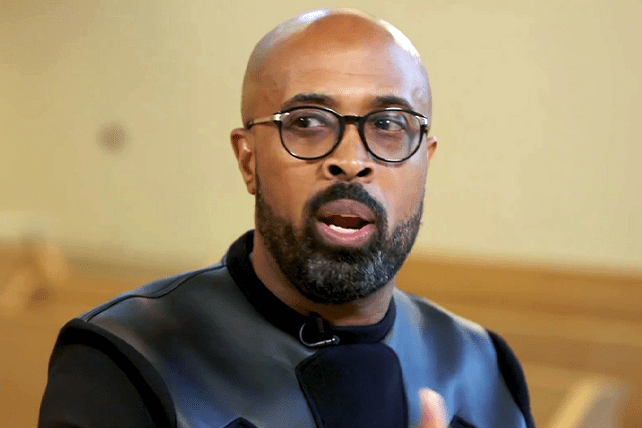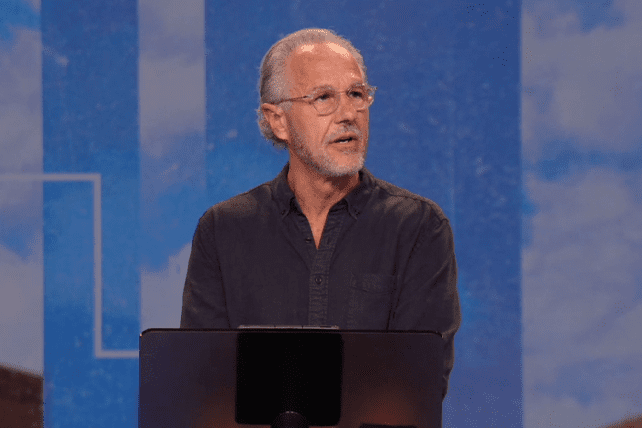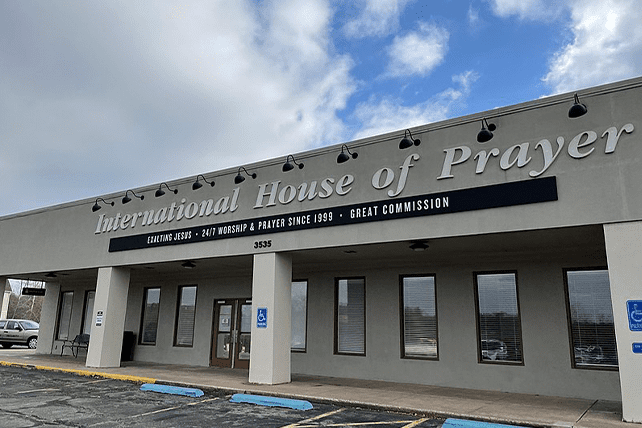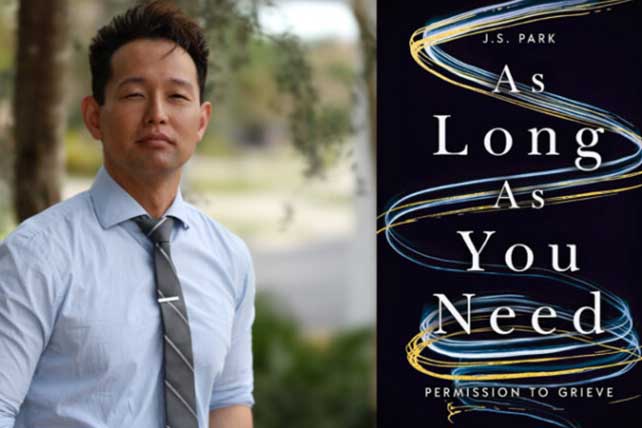Rebecca McLaughlin on The Stetzer ChurchLeaders Podcast.mp3: this mp3 audio file was automatically transcribed by Sonix with the best speech-to-text algorithms. This transcript may contain errors.
Voice Over:
Welcome to the Stetzer Church Leaders Podcast, conversations with today’s top ministry leaders to help you lead better every day. And now, here are your hosts, Ed Stetzer and Daniel Yang.
Daniel Yang:
Welcome to the Stetzer Church Leaders Podcast, where we’re helping Christian leaders navigate and lead through the cultural issues of our day. My name is Daniel Yang, national director of Churches of Welcome at World Relief. And today we’re talking with Doctor Rebecca McLaughlin, Rebecca’s former vice president of content at Veritas Forum, where she spent almost a decade working with Christian academics at leading secular universities. She’s the author of several books, including Confronting Christianity 12 Hard Questions for the World’s Largest Religion. Her latest is Does the Bible affirm same sex relationships? Examining ten claims about Scripture and sexuality. But first, let’s go to Ed Stetzer, editor in chief of Outreach magazine and the dean of Talbot School of Theology.
Ed Stetzer:
So we’re just going to jump right into the conversation with Rebecca. And you know, I remember I was on a panel, I don’t know, 15 years ago. And it was, uh, one, two, three, four of us. And there was the whole conversation, got a little got a little animated. And one of the people on the panel said, you know, I just think that, uh, that soon, uh, same sex relationship and our view of sexuality, uh, will become an agree to disagree issue among Christians, like in many ways. Um, you know, modes of baptism or or, you know, how we view, uh, egalitarian complementarian conversations across denominations that that would be in that category. So I just want to start with that question for you. Um, can Christians just agree to disagree? And maybe I should caveat that and say, can, uh, can evangelical Christians, um, you know, and people with their view of the scriptures and more so, but can Christians just agree to disagree on this topic? No. Okay. All right.
Rebecca McLaughlin :
Uh, I’ll say more. Yeah.
Ed Stetzer:
No, please. Please do say.
Rebecca McLaughlin :
More. Yeah. The reason and actually, I had this conversation recently with, um, a friend who is in, in a ministry context and in a college ministry context, was trying to navigate the fact that a lot of the students he was working with were either in a kind of affirming of same sex marriage position or unclear. And the way that he’d been navigating this was essentially allowing it to be functionally and agree to disagree issue. And I said, here’s one of the problems with that approach is that the question of whether same sex sexual relationships are or are not sinful is one that, you know, the rubber hits the road. If you like me as somebody who is attracted to people of their same sex, because it then becomes a question not just of sort of theory, but a question that could actually make a pretty major difference in your life. Because I think we can all agree that the New Testament takes sexual sin exceedingly seriously, that Jesus himself takes sexual sin exceedingly seriously. And if anything kind of tightens up the Old Testament law rather than relaxing it, you know, famously you have heard that it was said, don’t commit adultery. But I say to you, don’t even look at a woman with lustful intent. And then, you know, rolling right from that to if your eye causes you to sin, pluck it out, because it’s better to enter the kingdom of God without an eye than it is to to not. So the the seriousness with which the New Testament takes sexual sin is so high that if we cannot agree on what sexual sin is or isn’t.
Rebecca McLaughlin :
Or if we think it’s sort of unclear from the scriptures, like this is an incredibly high stakes. This is a life or death kind of situation, not a agree to disagree sort of scenario. Um, it seems to me as somebody who honestly, you know, one stage of my life, I’d have been more than happy to figure out a way to read the Bible that did allow for same sex marriage. I didn’t kind of come to the Bible hoping that it would say no, because I would have been more than happy to to pursue that path myself if I’d felt like that was an option. The more I have studied the scriptures, the more convinced I am that there is just a very clear no to same sex sexual relationships. But I feel like I’ve come to a better understanding both of the sort of gospel centered why to that, and of the gospel centered call that we all have to love one another as brothers and sisters in Christ. So I actually, I I’ve come to a point not of feeling kind of resentful or frustrated that there is a clear no in the Bible to something which I, you know, in my flesh would have been more than happy to to pursue, but actually feel like I’m kind of at least grasping the edges of quite how beautiful God’s vision for marriage is, and quite how beautiful God’s vision for brotherly and sisterly love between believers is, and how those are actually sort of different ways that we touch the edges of God’s love for us. It was a long answer to your question.
Ed Stetzer:
No, no, it’s but it’s I think it’s a it’s worthy of a long answer. I think this is the perhaps one of the most important issues of our day. You said it’s a life or death issue. That’s strong language. How is it a life or death issue.
Rebecca McLaughlin :
In two senses, one, for those who, um, feel a deep desire and for some, a sort of abiding desire for a same sex romantic or sexual partnership, the question of whether the Bible says yes to that or says no to that is, is a question that will then meaningfully shape their life. The even more important kind of life or death dimension to that is if this is something which my understanding of what Paul says in in first Corinthians six, you know, he says, don’t you realize that the unrighteous will not inherit the kingdom of God? And then he lists a whole bunch of sinful practices, which if you kind of walking unrepentantly in those sins, you’re walking yourself out of the kingdom of God. And one of those is, um, men who sleep with males. Um, and then he says, and this is what some of you were, but you were washed, you were justified. You were sanctified in the name of the Lord Jesus and by the spirit of our God. So if I’m understanding Paul correctly and I, I don’t see a particularly another way to, to understand him. This is unrepentant. Sexual sin is actually walking you out of the kingdom of God. Like this is a this is an eternal life level conversation that we’re having. Um, and so it is profoundly unloving to say to somebody who is a follower of Jesus and who is drawn to sexual or romantic relationships with their same sex, they’re like, well, maybe that’s okay, because actually, no, this is this is something that is, uh, we’re walking ourselves out of the kingdom of God if we’re unrepentant and in the area of sexual sin.
Ed Stetzer:
And you’ve indicated a couple times you’ve talked about same sex attraction, do you identify as lesbian, gay or some other terms in and around that, and why or why not? Would you identify because that is an issue that you’re aware of, maybe not of all of our listeners are aware of of how you identify that.
Rebecca McLaughlin :
Yeah. I think the Bible is exceedingly clear on how we should and shouldn’t use our bodies when it comes to same sex sexual relationships. I think how we then describe our experience or our patterns of temptation or however you, you know, we could kind of talk through different ways of of thinking about that is not a question on which the Bible is like, so crystal clear that I would want to call somebody a heretic who came to a different view from me. I think it’s more in the territory of of wisdom. So I would not refer to myself as gay or lesbian, even though. You know, as I sometimes said, if somebody kind of took a a video reel of my internal, what’s the best way to put this? I’ve been happily married to my husband for the last sort of 17 years. Anytime I’ve been attracted to somebody outside of my marriage has always been to a woman. Um, so on one diagnostic test, you could say, well, you know, it seems reasonably evident that this is somebody who is, um, strongly, primarily same sex attracted. Uh, fun fact or kind of interesting data point. About 16% of women experience some degree of same sex attraction, and about 7% of men do, but only 1% of women and 2% of men are exclusively attracted to people of their same sex.
Rebecca McLaughlin :
So whereas I might seem like a kind of strange outlier as a woman who’s happily married to a man, but is someone who is. As long as I can remember, I’ve always been primarily attracted to women. I’m not actually that atypical. Um, the reason I don’t find it helpful to refer to myself with either the sort of label lesbian or gay. Is a couple of things. One is that I think most people in our culture would understand both those words to refer to not only a pattern of attractions, but actually also a, um, a sort of living into those attractions. So, you know, some people say, well, I call myself a gay Christian, but I’m, I’m always ready to explain what I do and don’t mean by that. I understand that. I think the other piece is that because in our culture. The labels gay and lesbian and all sort of labels around sexuality and gender. Had become very much identity markers. I think there is meaningful risk or lack of wisdom for Christians to be taking one of those sort of identity markers to themselves, because I think it can, um, imply like a level of identification with, with something which at the end of the day is a is a sinful desire in my heart.
Rebecca McLaughlin :
Um, now, I could say, you know, I think of a friend of mine who’s an alcoholic and went through Alcoholics Anonymous, and so he’s used to saying, hi, I’m my name is so-and-so, and I’m an alcoholic. Like you could say, well, an alcoholic might identify themselves as an alcoholic without saying this is a good thing. That’s that’s true. I think often when, um, we identify ourselves with a label like gay or lesbian or bisexual or whatever, the implication in our culture is that we’re saying, like, this is a good thing, right? Um, so those are those are reasons why I wouldn’t want to use any of that language of myself, though. At the same time, I do want to hold space for people who, um, thoroughly agree with me on what the Bible teaches when it comes to same sex sexual relationships, but feel like that language describes their experience and makes most sense to the people around them, even though they have to do a bunch of explaining work to say what they do and don’t mean. Yeah, but.
Ed Stetzer:
It is interesting how like I started and I asked, is this agree to disagree? And you were very clear. No. And but now as we talk about how maybe identification it’s it’s no but I hold some space for that. So and I think this is a lot of people aren’t aware that this is part of the big conversation that’s going on right now is how best do we navigate, even among those who we would call orthodox on issues of sexuality, how best do we navigate how we articulate this? How do we help people to deal with their same sex attraction? Um, you know, and more. And so this has sort of blown up into the public sphere. Uh, we see we see crew has been in talked about and online in the news and more as they’re trying to kind of navigate some of that. So what’s your posture. I mean we talked about crew but and feel free to but what’s our posture in general, do you think our posture in general should be towards people who like, as you said, hold and shared that view, but are also maybe taking different approaches to to best navigate it?
Rebecca McLaughlin :
Yeah. I mean, say crew is actually a great example here because, um, our brothers and sisters who are working in campus ministry are in a context where they are trying to uphold clear Christian orthodoxy. And also, you know, especially for a campus ministry like crew that isn’t sort of denominationally, um, fixed. So it’s not like, you know, Reformed University Fellowship, for example, it doesn’t have its confessional statement is one that is not tied to a particular kind of denominational view. And so crew holds space for people who take a range of views on, on a number of issues. Um, you know, whether it’s sort of baptism or, you know, a whole, whole range of different, different things. And when it comes to the questions around sexual ethics and same sex sexual relationships in particular, um, crew has drawn a very clear, um, orthodox and to my mind, um, bold in the best sense stand when it comes to same sex sexual and.
Ed Stetzer:
I would say costly in some settings for them as well.
Rebecca McLaughlin :
Yeah. Exceedingly costly. I mean, any campus ministry that’s willing to, um, put a stake in the ground and say we do not affirm same sex sexual relationships under any circumstances is asking to be thrown off campus often. Um, you know, there’s a there’s a real kind of cost. Cost there, um, I think crew. Has done actually a really good job of saying to its ministry staff who are missionaries in a particular kind of ministry context. Um, we recognize that people are going to take different views on exactly how they. They want to approach students and how, um, how they might want to use language or not use language. They’re going to be conscience issues there. Um, and yeah, I feel like it, contrary to some of the claims that are being made about Cru’s lack of orthodoxy, I actually find Cru’s position to be extremely orthodox and and quite helpful, um, in, you know, difficult circumstances because you’re talking about a large organization that’s working on a whole range of campuses and on all sorts of other contexts as well, but trying to, um, you know, be clear and faithful when it comes to what the Bible teaches. Um, and also holding space for people to, not to not to teach anything that’s not aligned with that, but to, um, have conversations around language and around, um, you know, precisely how do we relate to those with whom we might disagree, for instance?
Ed Stetzer:
And I want to I want to go through some of the ten claims in particular. Does the Bible affirm same sex? The book title is Does the Bible Affirm same sex relationships? Relationships affirm examining ten claims about Scripture and sexuality. But I would be remiss if I didn’t ask about Richard Hayes and about the, you know, shift that we actually saw just just recently published. Now, we don’t know all the details of it because the book’s not out as well. But the moral vision has been something that a lot of us have quoted over the years. Uh, one person said that, you know, this this was the one scholar that conservative people like us could point to. And now that scholars changed his mind, uh, what are your thoughts around that?
Rebecca McLaughlin :
Yeah. I mean, I’ve only like any of us, I think at this point, read the the blurb published by, um, Yale University Press about the book, but I found it. Exceedingly disappointing. Um, sorry. I got a frog in my throat here. Uh, one of the ways in which I found it disappointing is that it the language of the widening of God’s mercy. Um. And even the sort of first line of of the blurb I’ll read out here a fresh, deeply biblical account of God’s expanding grace and mercy, developing a theological framework for the full inclusion of LGBTQ people in Christian communities. I’m part of a community group here up in Cambridge, Massachusetts. Um, I go to a little Southern Baptist church here. We have a Bible study group that meets every Tuesday night. And several, like many, in fact, at this point of my friends and the people I’m discipling and ministering to and being encouraged by are people who were they not Christians would be identifying as LGBT, um, or people who previously identified as LGBT and have now become Christians. For example, one young woman who literally has, um, tattoos of naked women on her body from the period when she was identifying as a lesbian and exclusively dating women who became a Christian just last year, got baptized in December. Um, there is no question as to whether people who identify as LGBT are have access to God’s mercy.
Rebecca McLaughlin :
All of us do. And anyone. It is. It has the offer of Jesus made to them, where they can repent and believe and put their trust in him. But none of us get to come to Jesus without repentance, and none of us get to say, do you know what? Um, well, let me put it the other way. Any of us who repent and believe and put our trust in Jesus must then recognize that he is our Lord and that he has the right to tell us what to do. He has the right to tell us what to do with our bodies. He has the right to tell us to deny ourselves. He has the right to tell us to to not fulfill our sexual dreams and romantic desires. He has all of that right over us. And so, so even the positioning of, um, those who like me hold to, uh, orthodoxy when it comes to same sex sexual relationships. The positioning of that as like. Somehow keeping people out of the realm of access to God’s mercy. I find. Um. Frustrating. Let’s put it that way. And then some of the, the other language and again I mean, I don’t I don’t want to judge a book by its cover or just by its blurb. And I look forward to reading the book when it comes out.
Ed Stetzer:
To be fair, it is more than the cover. I mean, it really is. I mean, it’s they’re articulating some. There’s a change of mind. Yes.
Rebecca McLaughlin :
Um, and some of the language around, um. You know, they remind us of a dynamic and gracious God who is willing to change his mind, consistently broadening his grace to include more and more people. I’ve read the Bible cover to cover, and I have not found a God who is changing his mind. You know, like I at a basic theological level, I find some of these claims to be.
Ed Stetzer:
I found that I thought that there might be a couple of places where they said the person prayed and God, you know, responded. And I I’m trying to figure out what you know, but but again, it’s a little bit hard to tell from, from the blurbs that we have.
Rebecca McLaughlin :
Yeah. So I think, um. When when we get to the point of saying actually. We’re going to figure out a way to read the Bible that doesn’t say no to same sex sexual relationships. We will tend to find ourselves in all sorts of other. Theological messes, for want of a better word. Um, and at least from what I can tell from the blurb, like this is. There’s going to be some a whole bunch of theological mess here.
Ed Stetzer:
Yeah. It was, it was um, of course that made a this was in early April, made a big, big, big news. And and I think more to come as the, the book is read and more. But but I do think I wanted to hear your a bit of your reaction. It kind of in some ways reminds me of of when Sam Albury responded to Andy Stanley’s in Christianity Today. Um, that, you know, I mean, I’m, I’m my, my, my journey is, you know, I’m you’re experiencing inclusion. You’re experiencing the community that’s there and others are there as well. And, and and you’re doing so I would say at a way that reflects a, a personal cost. And let me just say, maybe on behalf of evangelicalism, I’m thankful that you have maintained a biblical view, orthodoxy, when there’s a personal cost that’s there. And and it does certainly close closes conversations, closes doors and and has cost you personally. So so that’s why I think one of the reasons why I when I knew when I heard you had a new book coming out again, the book is Does the Bible Affirm same sex relationships examining ten claims about Scripture and sexuality? Uh, your book Confronting Christianity, sort of, you know, just everyone was talking about that. We had you speak at the amplify conference, and I was there, Wheaton and others. And I know you’re just back there as well. Um, so, so with these, uh, realities that are there, let’s talk some about those claims. Um, um, the you talked about ten claims in your book most often come across what how do you account what are the most what are the most common ones, and how do you kind of counter some of them?
Rebecca McLaughlin :
Yeah, I tried in the book to address what seemed to me to be the most common claims. Now, it may be that there was an 11th one that was more common and popular than the ones that I addressed. I didn’t do like a kind of scientific study of, um, exactly what people are saying. Um, but what I tried to do is to take each claim, um, seriously, because many of these claims actually, at first glance, sound quite persuasive and compelling. So I wanted to kind of look carefully at the claim that was being made and then to explain why. Actually, if we look in a bit more detail, we will see that this claim doesn’t hold up. Um, now, the one exception to this, I guess you could say, is I have an early chapter that’s looking at God’s judgment on Sodom. And that passage in Genesis is often referred to by Christians as like clear proof that God does not affirm same sex marriage. And I actually think the way that it’s been wielded by Christians, if that was the only evidence that we had from the Bible, I don’t think it makes that case. Now, I think it’s not inconsistent with the evidence of the rest of the Bible. So I’m not saying it like has nothing to contribute to this conversation. Um, but the situation in Sodom is a situation of sort of the attempted gang rape of these two men who were in fact, angels.
Rebecca McLaughlin :
But like, nobody on any side of this conversation is saying that, um, clearly God affirms gang rape like that. Um, so, so that’s a that’s a claim which I think has, um, you know, when people say actually you’re illegitimately applying the story of Sodom to the question of same sex marriage for Christians today, I think there’s an extent to which it is an illegitimate, illegitimate application. And interestingly, when Jesus talks about the story of Sodom, his application of it is not, um, therefore don’t have same sex sex. His application of it is, um, if the people of Sodom had had the kind of access to me that you guys have had and my teaching, they would have repented. So it’s going to be worse for you on on Judgment Day than it is than it was for the people of Sodom. Sort of startling, really. I mean, there’s, um. The more I read through, and the more I kind of looked at all of the different passages in the Bible that do speak to this issue, the more clear I’ve become on God’s, um, the seriousness of God’s judgment and the beauty of the gospel, and that actually any of us who are entering into these conversations from a posture of sort of superiority. Um, and looking, looking down on those sort of sinners over there.
Rebecca McLaughlin :
We’re not reading the passages carefully. Um, you know, even, for example, Paul in Romans one, when he, um, clearly portrays both male male and female female sexual relationships as, as sinful. Um, then at the beginning of chapter two kind of slaps you in the face if you’re somebody who was sort of reading this from a self-righteous perspective. So I think we have the the gospel baked in all around all of these passages. Um, and we, we end up kind of robbing the gospel of its power if we’re trying to just, um, position on what the Bible clearly says is sin is not sin. You know, the gospel is about the forgiveness of sins, not about, um, us sort of trying to reinterpret things that God says as sinful as as not sinful. Um, I think one of the, one of the areas which I found particularly interesting was looking at how the the word that Paul uses in a couple of places. Um, to describe men who sleep with other men. Um is aware that he’s essentially coined, based on the Greek translation of the verse in Leviticus 18, where, um, the law says that a man must not sleep with another male. And a sort of just interesting to see the connective tissue between the Old Testament and the and the new. Um, on that point and some of the ways in which I think affirming arguments try to say, well, we can’t really know what Paul was meaning there.
Rebecca McLaughlin :
I’m thinking it’s actually really hard to sort of look at this carefully in the, in the Greek and not to know what Paul is meaning there. Um, or when people say, well, the Bible’s only really talking about unequal and exploitative sexual relationships between an adult man and a teenage boy, which was very common for sure in in the Greco-Roman context into which Paul was writing. You know, one of the problems with that is that there was language for that that Paul didn’t use. Instead, he went straight back and sort of pulled those terms out of Leviticus and the languages of a of a man sleeping with another male. It’s the same word that’s used in Genesis when God creates humans, male and female. It doesn’t comment on the age of the person. It’s just like another male is what’s not. Okay. So I think it’s it’s often the case, I think that Christians are hearing an argument which says, oh, if only you’d read the Greek, or if only you’d read the Hebrew, or if only you knew about the cultural context. And actually, when you dig into any of these things, you find no. Once I know the Greek, once I know the Hebrew, once I know the cultural context, it’s still saying what it looks like. It’s saying.
Ed Stetzer:
The Setzer Church Leaders Podcast is part of the Church Leaders Podcast Network, which is dedicated to resourcing church leaders in order to help them face the complexities of ministry. Today, the Church Leaders Podcast Network supports pastors and ministry leaders by challenging assumptions, by providing insights and offering practical advice and solutions and steps that will help church leaders navigate the variety of cultures and contexts that we’re serving in. Learn more at Church leaders.com/podcast network. I think. I think it is a some people are feeling intimidated in the conversation and I think sometimes like, you know, the casually, flippantly referencing Sodom and Gomorrah is is without, you know, knowing you understand the argument in Romans one is probably not enough in 2024. And again, I think that’s one of the reasons why your book does the Bible affirm same sex relationships is going to be helpful for people. Now, again, we’ve got ten claims, but we don’t have time to go through all of them. But, you know, I mean, Jesus never mentions this, so why are you making this such a big deal? Let’s just start there.
Rebecca McLaughlin :
Yeah. Well, so Jesus, in his ministry on earth, was predominantly addressing his fellow Jews, and it was the occasions when Jesus is interacting with with Gentiles. But the large majority of time he is talking to his fellow Jews and and then obviously, at the end of his ministry on earth, sends his disciples to make disciples of all nations. And then he specifically commissions Paul to be the apostle to the Gentiles. But because the Jews of Jesus’s day were were familiar with the Old Testament law, they were not debating whether it was okay for a man to sleep with another male. That was something that they kind of knew pretty well. Um, you know, similarly, Jesus doesn’t, uh, spend time teaching that you shouldn’t worship idols. Now, is that because Jesus doesn’t care about idol worship? Not at all. It’s patently clear from the Old Testament that God’s people should not be worshipping idols. Um, but Jesus doesn’t feel the need to to teach on that specifically because he’s got, you know, he’s got a Jewish audience. He already knows that when it comes to Paul’s writings, we see quite a lot of condemnation of idol worship because he’s writing often to Gentiles who were coming to Christ out of a context of idol worship. And we see a number of references to same sex sexual relationships. Again, because he’s writing to Gentiles in a context where certain kinds of same sex sexual relationships were seen as perfectly normal and fine and and good. Now, I think it’s an exaggeration to say that Jesus doesn’t say anything, um, about same sex sexual relationships for two reasons.
Rebecca McLaughlin :
One is that the Greek word porneia, which is typically translated sexual immorality, was kind of a catchall terms for any kind of sexual relationships outside of male female marriage, and absolutely would have included in people’s minds, um, same sex sexual relationships in the terms of his day. And Jesus specifically condemns porneia um. Often adjacent to condemning adultery. So it’s not just, you know, that adultery is not okay, but also any form of sexual immorality is is not okay. And I find it particularly interesting in terms of our cultural context today that Jesus, um, says that sexual immorality is something that might come out of our hearts and make us unclean, because I think one of the arguments, or one of the kind of areas of concern people have today is like, you know what? Since it seems that for some people, myself included, same sex attraction seems sort of arise in us quite naturally. Like that’s how it feels. Like, how could you possibly say that something that arises in me so naturally is wrong? Well, the bad news is, Jesus says all sorts of things that arise in our hearts, seemingly naturally, are in fact sinful. So. We can’t come to Christ without recognizing we have a profoundly sinful heart that is going to like sinful desires are going to come out of my sinful heart, and I need Jesus’s forgiveness, and I need the Spirit’s help, um, to to to resist that.
Rebecca McLaughlin :
We also, in Matthew 19, see Jesus being asked about divorce and once again giving a kind of stricter version of the law than the the Old Testament gives. Um, and defining marriage as a one flesh union between one man and one woman. And it’s fascinating because Jesus could have only quoted Genesis two when he defines marriage, when he says, um, you know, quoting therefore a man will leave his father and his mother and be united to his wife, and the two will become one flesh. That would have been sufficient to make the point that Jesus was making about, um, sort of against divorce. But Jesus actually begins by saying, have you not heard that in the beginning God created them, male and female? Coming back to Genesis one. So it’s almost like Jesus sort of underscoring the male female nature of marriage, um, in a way that wouldn’t have been completely necessary to the point that he was making. So, yeah, I think it’s a I think it’s a misinterpretation of Jesus to say he had nothing to say and that, you know, we could, um, we could make Jesus’s words sort of accommodate same sex sexual relationships. But I think since it is so clear in the Old Testament and in the other New Testament writings that same sex sexual relationships are out of bounds, I think it’s an illegitimate read to say, well, Jesus, you know, clearly wasn’t concerned about this because he didn’t major on this when he’s talking to a different audience.
Ed Stetzer:
I think this is the the kind of things that people will find helpful in the book. Does the Bible affirm same sex relationships? Because I think, Rebecca, a lot of people are nervous about how to articulate this. And, and, and I and I actually tell them they need to be careful not just, you know, get up and regurgitate talking points, but they need they need to lean in on the topic. This is an issue of today, and I think clarity is kindness. And, you know, our own church has done a series on where we are on some of these issues and taught what the Bible teaches with, I think, pastoral wisdom and biblical orthodoxy. So why don’t we just say to people like, I just maybe I should just not talk about this issue at all.
Rebecca McLaughlin :
I think sometimes people feel, um, like they don’t want to talk about this issue because it feels like a distraction from the gospel. And it’s such a barrier to belief. I mean, certainly where I live in Cambridge, Massachusetts, there are so many people who wouldn’t even consider Christianity because in their minds, it’s homophobic. I think actually, if we are talking about Christian sexual ethics in a biblical way, we will find that it is completely centered on the gospel. And so one of the things that I sometimes say to to non-Christians is Christian sexual ethics is actually weirder than you think. You know, it’s not only that. I think that the Bible says that sex only belongs in marriage between one man and one woman, one woman, but that actually this is all about a metaphor. And it’s a metaphor that we see started in the Old Testament, when God is compared by prophet after prophet to a loving, faithful husband and Israel to his often unfaithful wife. Then Jesus comes sort of steps onto the stage of human history and declares that he is the bridegroom. It is very weird comment for a man to make who never married in his life on earth. But actually, if you understand the Old Testament context, it’s one of the ways in which Jesus is stepping into the shoes of the creator God revealed in the Old Testament scriptures. He’s saying, I am the bridegroom. Come to claim God’s people for myself.
Rebecca McLaughlin :
And we then see Paul in Ephesians five, when he describes Christian marriage as like a little sort of scale model of Jesus’s love for his people. Um, and says at the end of that passage in, um, Ephesians 533 that actually the whole point of marriage from the first, you know, he goes back to Genesis two and quotes that verse, therefore a man will leave his father and his mother united his wife. Two will become one flesh. He says, this is a profound mystery, but I’m saying that it refers to Christ in the church, um, that we see, oh, actually, just like God has built us, um, biologically, so that there is a thing called fatherhood. Um, and so that the, the absolute best human father can give us a tiny little glimpse of God’s fatherly love for us. So God has built us in such a way that we can enter into marriage and that we can have children in that context as well, to give us a tiny kind of glimpse of Jesus’s exclusive love for us. And we see it. Then at the end of the Bible, in the book of Revelation, multiple times, um, it’s described as the wedding of the lamb, as Jesus’s marriage to his people brings heaven and earth back together. So actually, I think when we talk about questions of sexual ethics, we need to lean right into the gospel. Because actually, if we’re not, we’re not really talking about Christian sexual ethics.
Rebecca McLaughlin :
Like at the center of this conversation is that love that Jesus has for his people. And at the same time, we need to remember that Jesus, on the night that he was betrayed, said to his disciples, this is my commandment, that you love one another as I have loved you. Greater love has no one than this, that he lay down his life for his friends. And actually, if we look through the the New Testament from soup to nuts, we will find time and again that we are commanded to love one another. And we’ll find the occasional verse about marriage and the occasional verse about parenting. Large majority of the time when we’re hearing about love in the New Testament, it’s God’s love for us. Or it’s it’s the brotherly and sisterly love that we are to have one another. And so rather than, as Christians, having a sort of shriveled and, um, uh, inadequate view of love between believers of the same sex, I actually think we have a beautiful and glorious vision for it. It’s just a different vision from the sexual and romantic kind of exclusive love of marriage. Um, and again, that’s something that I not only believe from reading the scriptures, but I like, see, in my life here as, as brothers and sisters sort of learn to love one another and find in the Christian community more love than they ever had when they were seeking their own sexual fulfillment.
Ed Stetzer:
The. Of course, you’ve written on this in No Greater Love A Biblical Vision for friendship. You might not know this, but we originally talked about having you on to talk about that and then found out that your new book was coming out. So I do want to commend again the book No Greater Love A Biblical Vision for friendship, which I think is really essential to this whole conversation. So last question. And, you know, the reality is you have a significant and generationally growing population that is identifying as LGBTQ plus. And so what would you say to pastors and church leaders, our audience, how can they best minister to and disciple people who come to them, who express their their own struggle with their sexual identity? What would you say? Um.
Rebecca McLaughlin :
I would say the harvest is plentiful. And I said that for for a couple of reasons. Um, one is that whereas there are some people who, like me, have grown up, you know, all all through adolescence or through young adulthood or whatever, like I, for whatever reason, um, have always been attracted to their same sex. There is there are also millions of Gen Z women right now who have had exceedingly bad experiences with men. And again, I have like close friends who’ve walked this path of. Basically coming to the point of saying, do you know what? I think I must be a lesbian because I find the sexual relationships I’ve been having with men to have been so awful. The fact is, in in secular culture today, and more so than it was 10 or 20 years ago, like the sexual revolution as a whole has been exceedingly bad for women. And I’ve read like non-Christian authors saying this as well. It’s I’m not even just saying this from a Christian perspective. And the idea that casual sex is something that women in general are going to want to be made happy by. It’s actually, um, demonstrably false on average. What we’ve introduced in in the last several years is a normalization of sexual violence. So, for example, you know, women being choked by their sexual partners. Um, and women are being told, oh, this you should absolutely be in favor of this.
Rebecca McLaughlin :
Isn’t this so great? Actually, it’s awful, like profoundly terrible. And so we have today. Millions of young women who are dating other women, um, as a sort of refuge from the horrors of dating young men. Now, again, I want to be clear. I’m not that that is not the story of every young woman who identifies as as a lesbian or as, um, as same sex attracted or whatever. Um, there are plenty of people with more of my story, but that’s I do think that explains, um, at least some of the the rapid kind of uptick of of young women in particular in this situation. Um, and alongside all of this, the decline in church attendance over the last 25 years has gone hand in hand with a massive upswing in depression, anxiety, suicide attempts, etc., especially among young women. And those are distinctly related things. Um, in fact, Harvard School of Public Health has been. Um, publishing studies on this like it’s we have a a generation in particular, um, Gen Z that is actually desperate for what we have to offer in the church. Um, and I say that not only because I believe the gospel to be true, which I do, but also just at a purely empirical level. Um, what people need is love, not the kind of sexual culture that they’ve been pushed into.
Ed Stetzer:
So that person comes to the pastor, church leader. How do how do we walk alongside on that journey with them?
Rebecca McLaughlin :
Um, I think a lot of it is going to be. Finding people within our congregations who are who are in a good position to love these young people. Now, what do I mean by that? Now, last Tuesday, for instance, I, um, invited a one of the young women in our community group who, um, as a student, started dating another girl and to end up engaged that girl. And then. While they were engaged decided, like, actually, I can’t, I just can’t go through with this. Ended up moving to Boston, started coming to our church, like properly engaged with Christianity in a meaningful way for arguably the first time. And, um, is now at a point where, you know, she’s very seriously following Jesus. Um, I asked her to share her story with a young woman who sort of figuring out what she believes and who has herself a history of same sex sexual relationships. Um. It’s finding those people within our communities who can, um. It empathize with in in the best sense. Um and love. Um, those who who might be feeling really hurt. Um, sometimes by church experiences as well as by what they’ve experienced sort of outside in the secular world and, um, us all growing in our capacity for genuinely, um, developing community love. Because. Even if somebody profoundly disagrees with you. Often if they know that you are acting with genuine love towards them. They’re actually ready to listen to what you have to say. Um, I say that not least, like this morning, I was given a bunch of flowers by the atheist lesbian barista at the the coffee shop where I routinely work, who we’ve had all these conversations. But she knows that I love her. And so we have a great relationship and we, you know, chat a lot. We give each other thoughtful gifts and I pray for her pretty much every day.
Ed Stetzer:
Thanks for taking the time. These are these are not easy conversations, particularly when a culture has overwhelmingly changed its mind on sexuality in the last maybe 15 or 20 years. But there are important ones. And this is our day. This is our time. So we walk through the moment that we have seeking to be faithful to the scriptures that we love and under the Lordship of Jesus Christ. So thanks for taking the time to have the conversation with us.
Daniel Yang:
We’ve been talking to Rebecca McLaughlin. You can learn more about her at Rebecca McLaughlin. Org. Be sure to check out her book Does the Bible Affirm Same Sex Relationships? Examining ten claims about Scripture and sexuality. And thanks again for listening to the Sister Church Leaders Podcast. You can find more interviews, as well as other great content for ministry leaders at church leaders, compered casts. And through our new podcast network, Church Leaders Compered network. And again, if you found our conversation today helpful, we’d love for you to take a few moments. Leave us a review that will help other ministry leaders find us and benefit from our content. Thanks for listening. We’ll see you in the next episode.
Voice Over:
You’ve been listening to the Stetzer Church Leaders podcast for more great interviews as well as articles, videos, and free resources, visit our website at Church leaders.com. Thanks for listening.
Sonix has many features that you’d love including automatic transcription software, share transcripts, world-class support, automated subtitles, and easily transcribe your Zoom meetings. Try Sonix for free today.



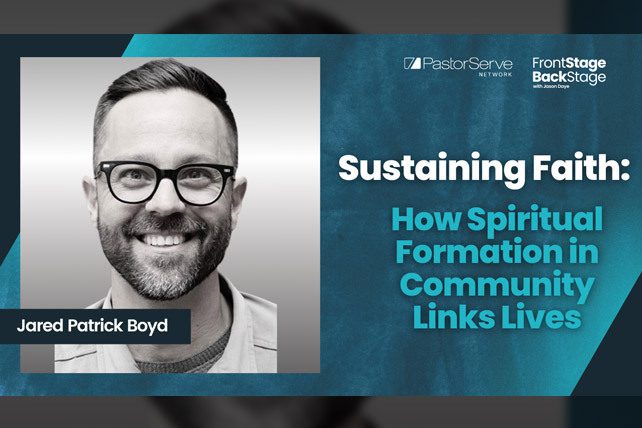
 How do we draw people together in deeper and more meaningful ways that provides space for their questions and encourages them to flourish in their faith? In this week’s conversation on FrontStage BackStage, host Jason Daye is joined by Jared Patrick Boyd. Jared is a pastor, a spiritual director, and the founding director of The Order of The Common Life. His most recent book is titled “Finding Freedom in Constraint.” Together, Jared and Jason explore the hope we find in the midst of the strains the church is currently experiencing, including people walking away. Jared highlights the value of spiritual formation in community as a vital and beautiful way for relationships to deepen and endure.
How do we draw people together in deeper and more meaningful ways that provides space for their questions and encourages them to flourish in their faith? In this week’s conversation on FrontStage BackStage, host Jason Daye is joined by Jared Patrick Boyd. Jared is a pastor, a spiritual director, and the founding director of The Order of The Common Life. His most recent book is titled “Finding Freedom in Constraint.” Together, Jared and Jason explore the hope we find in the midst of the strains the church is currently experiencing, including people walking away. Jared highlights the value of spiritual formation in community as a vital and beautiful way for relationships to deepen and endure.